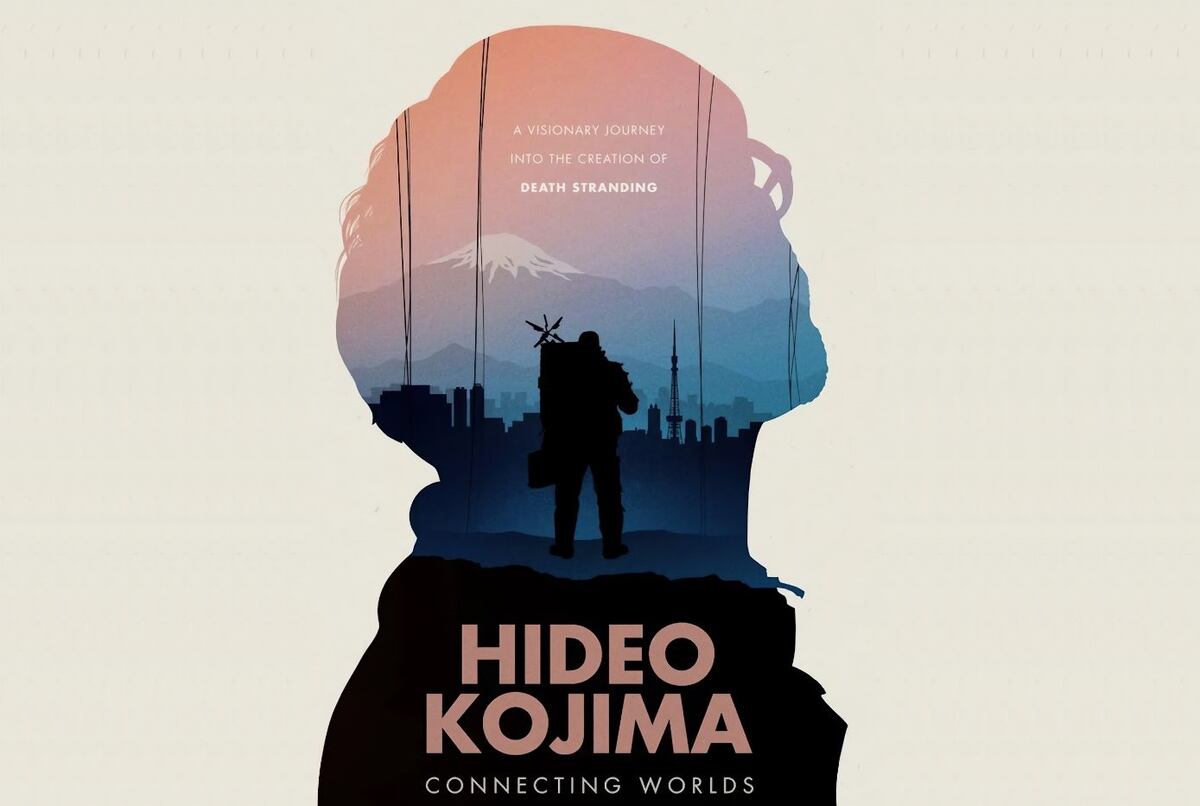Where are the weapons?
Where are the fighting?
Everyone wondered the same thing when, in 2019, Hideo Kojima's last game,
Death Stranding,
arrived .
It was a radical proposal, rooted in a hostile world where death becomes a physical dimension and where people live in shelters to protect themselves from an aging rain.
Sure, the game had combat, weapons, terrifying enemies, and action, but the truth is that the core of the experience was… walking.
Walk and deliver packages throughout a barren and desolate world.
Over time,
Death Stranding
has been revealed as a revolutionary game, with a depth unusual in its contemporaries and that in a certain way revolutionized the industry with an extremely risky proposal.
In his own right, Kojima is considered one of the most important (and renowned) video game creators in the world.
This is relevant because Disney + has released a documentary focused on the figure of the Japanese,
Hideo Kojima, Connecting Worlds
(not yet available in Spain), which attempts to investigate the work, personality and idiosyncrasies of the creator.
The cinematographic and the Kojima world have always been, if the easy joke with the name of the documentary is allowed, two worlds condemned to connect.
Set between 2017 and 2019, during the creation of
Death Stranding
, the documentary has its gravitational center, in addition to the technical creation process of a game, in the analysis of the work of Kojima (born 60 years ago in Soshigaya) that makes a good handful of authoritative voices.
“In any creative process it is always the same: an interaction between intellect and intuition, and he exemplifies that,” film director George Miller says of Kojima.
“I admire his sense of drama.
He is capable of walking through twists and turns that Western narrative would never go into,” explains Guillermo del Toro.
“He does not repeat patterns, he invents.
And always, behind every game he makes, there is a reason,” describes video game journalist Geoff Keighley.
“His work lives in an uncanny valley between comedy and extreme seriousness,” believes singer Grimes.
“Art doesn't necessarily have to satisfy you.
It has to inspire you.
And his games do that and much more,” says Nicolas Winding Refn.
They are laudatory phrases, yes, but they achieve their objective of making the casual viewer aware of the importance that Kojima has as a creator and how he has influenced the culture of this century.
Images from 'Death Stranding' and 'Metal Gear Solid 4'.
It is in this artistic prospection that other creators make of Kojima's work that the value of a documentary lies that, although it undertakes an important task of reaching out to the general public, commits the sin of focusing too much on
Death Stranding
, overlooking other works. fundamentals of the medium, such as
Zone of Enders
or, of course, the espionage saga
Metal Gear
.
There are objective reasons for this absence, yes (
Metal Gear
is a saga that strictly belongs to Konami, with which Kojima is in conflict), but the excuses do not matter when it comes to assessing the quality of a cinematographic creation that feels so solvent. in what counts as lame because of what is silent.
The documentary, which mixes real images, interviews and recreations in 2D animation, tells of his life, his lonely childhood;
how, paradoxically, the death of his father allowed him access to an industry with a bad image;
how he didn't want to play war games, being the son of two survivors of a real war;
how the 1970 Osaka Expo allowed him to see foreigners for the first time and learn about other cultures.
Three months after the game came out, covid arrived.
People were trapped at home and those who played the game then saw themselves reflected in a digital mirror.
It may be a coincidence, but it certainly rhymes with Kojima's work, which has always had, in addition to other virtues, a premonitory quality that perhaps peaked in
Metal Gear Solid II
(2001), where more than two decades ago he dealt with themes such as post-truth,
fake news
, echo chambers or the use of context as a political weapon.
The function of art, says del Toro, is to broaden the human spirit.
And the video game is an art because it also achieves that goal, he adds.
He is clear about it, but, if anyone doubts, one of the best things he can do is play
Death Stranding
.
And, in general, all the work of that brilliant Japanese man called Hideo Kojima.
You can follow
Babelia
on
and
X
, or sign up here to receive
our weekly newsletter
.
Subscribe to continue reading
Read without limits
Keep reading
I am already a subscriber
_

